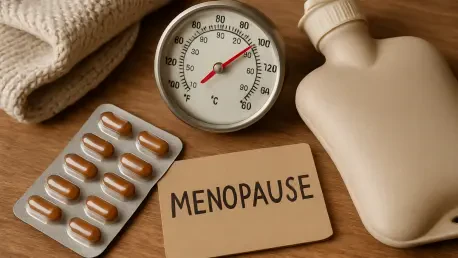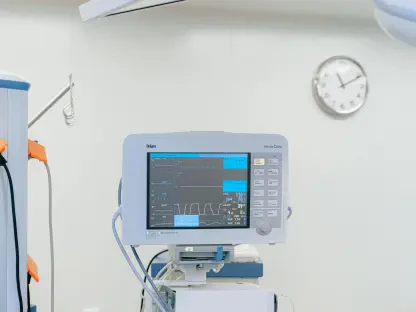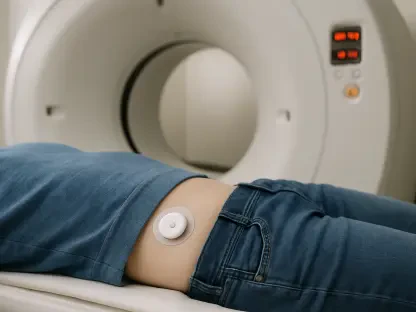Every year, millions of women face the challenges of menopause, grappling with symptoms like hot flashes and night sweats that can disrupt daily life, and for decades, hormone replacement therapy (HRT) has been a potential lifeline, yet shrouded in fear due to severe FDA warnings linking it to risks like cancer and heart disease. Now, in a groundbreaking policy shift, the FDA has removed these boxed warnings, sparking intense debate across the medical community. This roundup gathers diverse opinions, insights, and practical tips from various experts and stakeholders to explore what this change means for women’s health, aiming to provide a balanced view of the evolving narrative around HRT.
Unpacking the Policy Shift: Diverse Reactions to a Bold Move
The decision to remove the FDA’s most severe warnings on HRT marks a significant departure from decades of caution. Many in the medical field view this as a long-overdue correction, pointing to newer studies that suggest benefits such as reduced fracture risk and potential cardiovascular improvements. A segment of clinicians argues that this shift validates years of advocacy for reevaluating outdated fears stemming from early research like the Women’s Health Initiative studies, which initially raised alarms about HRT’s safety.
However, not all reactions are celebratory. Some health professionals express concern that lifting these warnings might downplay legitimate risks, particularly for women with specific health profiles. They emphasize that while the evidence has evolved, gaps in long-term data still exist, and the public could misinterpret this change as a blanket endorsement of HRT. This divide highlights a broader tension between embracing new science and maintaining a cautious approach to patient safety.
Beyond the medical sphere, patient advocacy groups have also weighed in, often with optimism. Many representatives note that women have long felt deterred from seeking relief due to fear-driven messaging. They argue that this policy change could empower more individuals to discuss HRT openly with their doctors, potentially transforming quality of life for those struggling with severe menopausal symptoms.
Revisiting HRT’s Role: Contrasting Views on Safety and Benefits
Balancing Risks with Emerging Evidence
Delving into the safety profile of HRT, a growing number of researchers highlight recent findings that challenge earlier assumptions. Studies over the past few years have shown that for certain age groups, particularly women starting therapy closer to menopause onset, HRT may offer protective effects against heart issues and bone loss. Supporters within the scientific community argue that these benefits, when weighed against risks, justify a less restrictive stance on the therapy.
On the other hand, a cautious faction of experts warns against over-optimism. They point out that while newer data is promising, it is not universally conclusive, and risks like breast cancer remain a concern for long-term users. This group stresses the importance of ongoing research to clarify how factors such as dosage and duration impact outcomes, urging that the removal of warnings should not equate to unchecked usage.
The debate extends to how this evidence is communicated. Some medical educators argue that without the severe warnings, there is a risk of oversimplification, where patients might overlook nuanced risks. They advocate for robust training for healthcare providers to ensure that discussions about HRT remain detailed and individualized, rather than swayed by a generalized shift in policy.
Personalizing Care in a New Era
The push for personalized menopause care has gained traction with this FDA decision, as many clinicians emphasize the need for tailored conversations over one-size-fits-all approaches. Insights from women’s health specialists suggest that HRT can be life-changing for those with debilitating symptoms, provided the therapy matches the patient’s health history and lifestyle needs. This perspective aligns with endorsements from several medical associations that support individualized treatment plans.
Contrarily, some public health advocates raise concerns about accessibility and education. They argue that while personalization is ideal, disparities in healthcare access could mean that not all women receive the thorough counseling needed to make informed decisions. There is a fear that without clear, widely available guidance, some might pursue HRT without fully understanding potential downsides.
Additionally, feedback from patient forums reveals a mixed reception. While many women welcome the opportunity to explore HRT without the stigma of severe warnings, others express anxiety about navigating these choices without definitive answers. This underscores a critical need for resources that bridge the gap between policy changes and practical, everyday decision-making.
Innovations and Alternatives in Menopause Management
Innovation in menopause care is another focal point, with the FDA’s recent approvals of a generic version of Premarin and a non-hormonal hot flash treatment drawing attention. Industry analysts note that these developments reflect a broader commitment to diversifying options for women, offering alternatives for those wary of hormonal therapies. This trend is seen as a positive step toward inclusivity in treatment choices.
Comparatively, perspectives from international health bodies reveal varied approaches to HRT. In some regions, less restrictive guidelines have been in place for years, with data suggesting favorable outcomes in symptom management. Experts studying these global differences speculate that future research, potentially spanning from now to the next few years, could provide deeper insights into long-term effects and help standardize best practices across borders.
Yet, a recurring critique from holistic health practitioners is that HRT, even with reduced warnings, should not be viewed as a universal solution. They advocate for greater exploration of non-hormonal therapies and lifestyle adjustments, arguing that a comprehensive approach to menopause care must consider individual health profiles alongside emerging therapies. This viewpoint pushes for a balanced dialogue that does not prioritize one treatment over others without sufficient personalization.
Regulatory Process: Transparency Versus Efficiency
The unconventional path to this FDA decision has sparked its own set of opinions. Proponents of the process, including some regulatory scholars, commend the efficiency of convening an informal expert panel rather than a traditional advisory committee. They argue that this streamlined approach allowed for focused, expert-driven discussions, cutting through bureaucratic delays while still grounding the decision in scientific literature.
Critics, however, question the lack of transparency in this method. Public health watchdogs point out that limiting public input until after key conclusions were drawn may erode trust in the regulatory framework. They contend that while speed is valuable, the absence of a formal, open process could set a precedent for less accountable decision-making in future health policies.
A middle-ground perspective comes from policy analysts who suggest that while the informal panel achieved a swift outcome, future changes of this magnitude should integrate broader stakeholder feedback earlier in the process. This balance, they argue, could maintain public confidence while still allowing for agile responses to evolving medical evidence.
Key Takeaways and Practical Tips for Navigating HRT Options
Synthesizing these perspectives, the removal of severe warnings on HRT emerges as a pivotal moment that reframes the therapy as a viable option for many women. The consensus among various sources is that evolving evidence supports a more nuanced view of HRT’s benefits, from symptom relief to potential long-term health gains, though risks remain a point of contention. This shift also underscores the availability of new treatments, broadening the landscape of menopause care.
For women considering HRT, a common piece of advice from healthcare providers is to initiate open, detailed discussions with their doctors. These conversations should weigh personal health histories against the latest research, ensuring decisions are neither driven by outdated fears nor unexamined optimism. Clinicians, in turn, are encouraged to stay abreast of current studies to offer the most informed guidance.
Beyond hormonal options, exploring non-hormonal treatments and lifestyle adjustments is also recommended. Patient advocacy groups suggest creating a comprehensive care plan that might include dietary changes or alternative therapies alongside medical interventions. This multifaceted approach aims to address individual needs while navigating the complexities of this policy change.
Reflecting on a Milestone in Women’s Health
Looking back, the FDA’s decision to lift severe warnings on hormone therapy for menopause stirred a rich tapestry of opinions, from cautious optimism among clinicians to calls for transparency by regulatory critics. The diverse insights gathered revealed a shared goal of improving women’s quality of life, even as debates persisted over safety, access, and the best path forward. This moment in women’s health history underscored the importance of evolving science in shaping care.
Moving ahead, stakeholders were urged to prioritize actionable steps like enhancing patient education and fostering research into long-term HRT effects. A key consideration that emerged was the need for healthcare systems to bridge disparities, ensuring all women could access informed counseling. This policy shift, while historic, was seen as a starting point for deeper empowerment, encouraging active dialogue and personalized solutions in menopause management.









